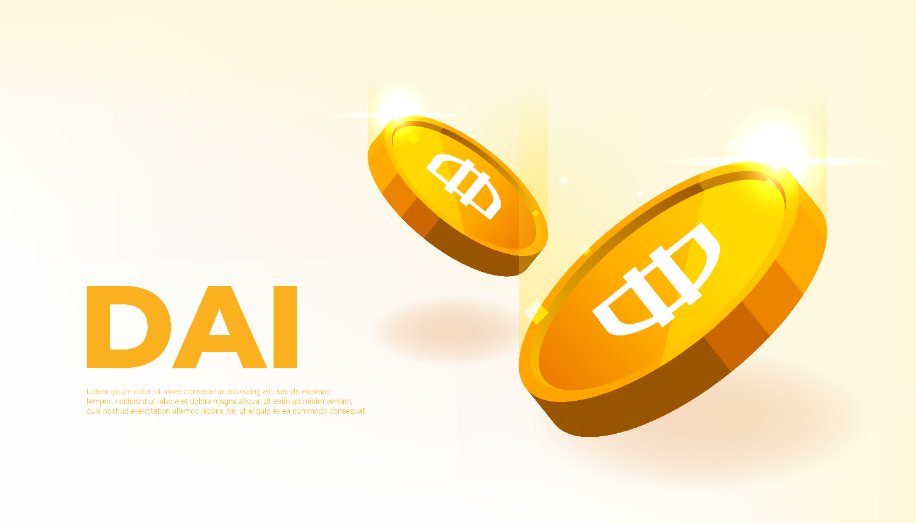
Die amerikanische Krypto-Sparplattform ist nun auch Gegenstand der Ermittlungen mehrerer US-Behörden. Durch das Partnerunternehmen Nuri wird der Fall womöglich auch für die deutsche BaFin interessant.

Finanzmittel Info + Krypto + Geld + Gold
Krypto minen, NFT minten, Gold schürfen und Geld drucken

Die amerikanische Krypto-Sparplattform ist nun auch Gegenstand der Ermittlungen mehrerer US-Behörden. Durch das Partnerunternehmen Nuri wird der Fall womöglich auch für die deutsche BaFin interessant.

Due to the ongoing crypto market meltdown, Babel Finance, an Asian-based crypto lender firm, has suspended all their products’ redemptions and withdrawals from clients, noting that their firm is facing ‘’Unusual liquidity pressure.’’
Today, June 17, Babel Finance wrote a notice on their official website to inform their customers of the decisions they are taking to protect them as the markets continue to trade sideways. It’s important to note that majority of the institutions in the crypto industry have been through conductive risk events.
The notice read:
‘’Recently, the crypto market has seen major fluctuations, and some institutions in the industry have experienced conductive risk events. Due to the current situation, Babel Finance is facing unusual liquidity pressures. We are in close communication with all related parties on the actions we are taking in order to best protect our customers. During this period, redemptions and withdrawals from Babel Finance products will be temporarily suspended, and resumption of normal service be notified separately. We apologize sincerely for any inconvenience caused.’’
With the plunging crypto markets, DeFi platforms seem to be resulting in pausing withdrawals with others like Celsius going as far as pausing swaps and internal transfers.
Yesterday, Finblox, a staking platform, also shared a tweet stating that they have restricted withdrawals from their platform to $1,500 per month from a limit of $500 per day as a result of its connection with the Three Arrows Capital (3AC).
IMPORTANT UPDATE FROM FINBLOX! pic.twitter.com/VjclRMMiSe
— Finblox (@finblox) June 16, 2022
Three Arrows Capital has found itself at the center of insolvency speculations following the deteriorating crypto prices. Today, the firm’s leveraged positions were liquidated by the three crypto exchanges namely FTX, BitMEX, and Deribit.
The post Unusual liquidity pressures force Babel Finance to suspend withdrawals appeared first on CoinJournal.

In a move to reduce exposure to the embattled Celsius Network, MakerDAO has voted to temporarily disable the Direct Deposit Module (D3M) of DAI for DeFi lending platform Aave. Aave users will not be able to access DAI loans on Aave using stETH as collateral through the Direct Deposit Module.
MakerDAO is the organization behind the DAI stablecoin.
Through a tweet made on Thursday, MakerDAO announced that its community members had voted to temporarily suspend Aave DAI Direct Deposit Module.
The Maker Governance has voted to temporarily disable the @AaveAave DAI Direct Deposit Module (D3M).
This change is available for execution on June 17 2022 21:03 UTC.
— Maker (@MakerDAO) June 15, 2022
According to the tweet, the outcome of the vote was to be executed from June 17 2022 21:03 UTC.
The governance proposal to disable DAI supply on Aave was put forward earlier this week in an attempt to reduce Maker’s exposure to the besieged crypto lending platform Celsius.
According to the governance proposal, the Target Borrow Rate will be set to zero in the smart contract responsible for D3M thus preventing further borrowing by Celsius using Aave’s D3M.
Part of the proposal read:
“This change is being proposed to temporarily disable the Aave D3M. The Aave DAI Direct Deposit Module (D3M) Target Borrow Rate (bar) will be set to 0”
The Direct Deposit Module (D3M) is the one that allows interactions between the Maker ecosystem and other third-party lending pools including Aave. The main objective of the D3M is to maintain DAI’s interest rate across the lending pools, especially on Aave.
Currently, Aave has a total exposure of 200 million DAI tokens through the D3M. Out of that, 100 million DAI tokens are borrowed by Celsius using stETH (a representation of ETH staked with Lido) collateral.
Celsius earlier this week indefinitely paused withdrawals, swaps, and transfers amid growing concerns about the crypto lender exposure to stETH. There was growing uncertainty on stETH due to the upcoming Ethereum merge that made stETH to lose its peg against ETH.
As a result, there was very heavy selling pressure on the stETH putting Celsius in a precarious position since it had locked customer funds into stETH.
If the worst comes to the worst and Celsius becomes insolvent and faces a margin call, it would be forced to dump its stETH; something that would cause the stETH to de-peg further from ETH. This would mean the 100 million DAI tokens that MakerDAO had lent to Celsius would become irrecoverable.
To protect their lending power and prevent Celsius from borrowing more DAI tokens using stETH as collateral, MakerDAO has voted to temporarily disable the D3M.
According to a proposal referred to as “proposal 83, following the disabling of D3M, Aave is also considering freezing stETH and its use as collateral on the platform.
The post MakerDAO reduces exposure to Celsius, disables Aave DAI supply appeared first on CoinJournal.

Kryptowährungen florieren wie nie zuvor und jeden Tag mehr und mehr Regierungen und andere Behörden beginnen, sie ernst zu nehmen. Die Währungen verbreiten sich langsam, aber sicher in alle Ecken der Gesellschaft – und kürzlich haben sie auch in der Glücksspielbranche einen Wandel verursacht.
Mit dem Aufkommen der sogenannten Krypto-Casinos können Spieler nun Wetten abschließen, indem sie ausschließlich mit Kryptowährungen bezahlen. Dies bietet zwar eine Vielzahl neuer Möglichkeiten, wirft aber auch viele Fragen zu Sicherheit, Vorschriften und Regeln auf.
Im Folgenden gehen wir auf einige davon ein und erklären Ihnen das neue Casino-Konzept.
Zuallererst sollten wir definieren, was genau der Unterschied zwischen Krypto-Casinos und denen ist, die Sie vielleicht kennen.
Es ist eigentlich ziemlich einfach:
Bei einem herkömmlichen Casino-Spiel werden alle Einsätze in Fiat-Geld getätigt und über herkömmliche Zahlungsmethoden wie Kreditkarten abgewickelt – Transaktionen, die mit vielen Einschränkungen und Gebühren verbunden sind und natürlich auf den Kontoauszügen auftauchen.
Ein Krypto-Casino oder Krypto-Glücksspiel hingegen verwendet nur Kryptowährungen. Alle Wetten und Gewinne werden in Kryptowährungen abgewickelt und bieten im Vergleich zu herkömmlichen Casinos ein anonymeres Glücksspielerlebnis. In einigen Fällen ist es sogar möglich, außer einer E-Mail-Adresse keine weiteren persönlichen Daten anzugeben.
Obwohl das Konzept ziemlich neu ist, entstehen jeden Tag mehr und mehr Krypto-Casinos. Seiten wie cryptocasinomaster.com bietet Leitfäden an, die Ihnen helfen, ein Casino zu finden, das die Kryptowährung Ihrer Wahl akzeptiert und alle Ihre Anforderungen erfüllt – nutzen Sie diese also unbedingt, bevor Sie Ihre erste Wette platzieren.
Ein offensichtlicher Vorteil des Krypto-Glücksspiels und der Verwendung von Kryptowährungen im Allgemeinen besteht darin, dass Sie sich nicht mit Banken und ihren Systemen und Regeln befassen müssen. Mit Kryptowährung gibt es keine hohen Transaktionsgebühren, keine eingefrorenen Konten und keine blockierten Transaktionen. Und wie bereits erwähnt, erscheint das Spielen mit Krypto nicht auf Ihren Kontoauszügen – was bedeutet, dass es Ihnen völlig frei steht, Ihre Transaktionen anonym durchzuführen.
Diese Trennung vom Bankensystem bedeutet auch, dass es keine internationalen Barrieren gibt, die Kryptowährungen nicht überschreiten können. Da es sich bei der Blockchain um ein öffentliches Hauptbuch handelt, können Sie außerdem problemlos nachweisen, dass eine Zahlung erfolgt ist. Und nur der überwiesene Betrag ist sichtbar, wobei die vollständige Anonymität gewahrt bleibt.
Die Möglichkeit der totalen Anonymität beim Krypto-Glücksspiel kann sowohl als Vor- als auch als Nachteil angesehen werden, je nachdem, wer Sie sind.
In einer Zeit, in der Privatsphäre mit zunehmender Überwachung überall schwer zu bekommen ist, ist die Möglichkeit, anonym zu bleiben, natürlich eine willkommene Abwechslung. Aber für Personen, die an Suchtverhalten leiden, ist der Einstieg in das Krypto-Glücksspiel eine riskante Angelegenheit – und für genesende Spielsüchtige kann das Kennenlernen von Krypto-Casinos der Tropfen sein, der das Fass zum Überlaufen bringt.
Für reguläre Casinos gibt es etablierte Sicherheitsmaßnahmen, z. B. die Möglichkeit für Spielsüchtige, sich selbst aus Casinos auszuschließen. Da Krypto-Casinos jedoch keine Identifizierung erfordern, bedeutet ein Selbstausschluss in vielen Fällen nur, dass der Spieler ein neues Konto einrichten muss, um weiter zu wetten.
Abgesehen davon birgt die fehlende Autorität zur Kontrolle der Blockchain auch gewisse Risiken. Wenn Sie während einer Transaktion auf Probleme stoßen, kann Ihnen kein Kundendienst wirklich helfen, und gestohlene Gelder sind im Grunde nicht zurückverfolgbar.
Sie sollten auch besonders darauf achten, die Gültigkeit des Krypto-Casinos Ihrer Wahl zu überprüfen. Wenn es sich um einen Betrug handelt, kann nichts getan werden, um das Geld, das Sie ihnen gezahlt haben, zurückzubekommen. Und schließlich sollte auch die Volatilität von Kryptowährungen selbst berücksichtigt werden.
The post Krypto-Casinos: Was sind sie und sollten Sie sie ausprobieren? appeared first on BitcoinMag.de.

Trotz mehrerer Aufforderungen konnte die Huobi Thailand den Ansprüchen der thailändischen SEC nicht gerecht werden, was nun die Schließung der Tochterfirma der Kryptobörse zur Folge hat.